Ansys Motor-CAD
Ansys Motor-CAD is a specialized electric machine design tool that allows for quick multiphysics simulation over the entire torque-speed working range.
Ansys Motor-CAD is a specialized electric machine design tool that allows for quick multiphysics simulation over the entire torque-speed working range.
Fast Multiphysics Simulation Over the Entire Torque-Speed Range
Design engineers can use Motor-CAD to assess motor topologies and concepts across a whole working range, resulting in designs that are optimized for performance, efficiency, and size.
The four integrated modules in Motor-CAD software (EMAG, Therm, Lab, and Mech) allow users to do multiphysics calculations quickly and iteratively, allowing them to go from concept to final design in less time.
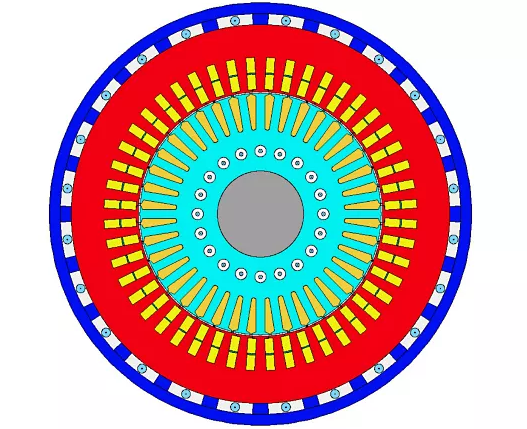
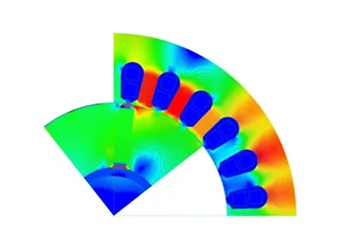
With shorter development cycles, motor designers must make design decisions fast and confidently, knowing that they will not encounter complications later. Motor-CAD users may explore additional motor topologies and fully examine the impact of advanced loss effects in the early stages of design thanks to fast calculations and improved data entry methods.
The design process is simplified by Motor-CAD’s software intuitive, template-based setup, and embedded multiphysics expertise, which reduces reliance on multiple teams for specific electromagnetic, thermal, or mechanical experience, allowing motors designed to maintain more control over their designs.
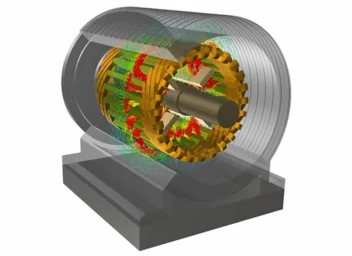
For advanced 2D and 3D electromagnetic analysis, Ansys Motor-CAD interfaces with Ansys Maxwell. Additionally, Ansys Motor-CAD interfaces with Mechanical and VRXPERIENCE to anticipate electric machine noise and vibration (psycho-acoustic). It also integrates with Ansys CFD solvers and uses air, water, and oil-based cooling strategies for cooling system design and analysis, as well as providing feedback to Motor-Thermal CAD models.
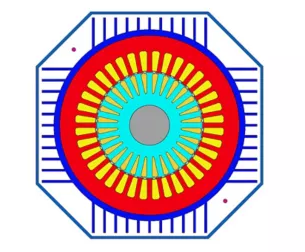
The whole electric machine design space may be explored using comprehensive and sophisticated geometry templates. Electric machine technologies, topologies, and cooling systems are all covered by templates. Ratio-based parameterization options are a new innovation that provides unrivaled parametric design optimization possibilities.
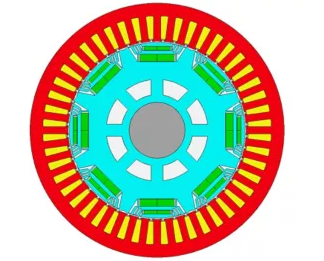
Virtual testing of temperature impacts across transient drive cycles or at a steady state is possible because of a combination of multi-physics analysis from the outset of the design process and in-built control algorithms.
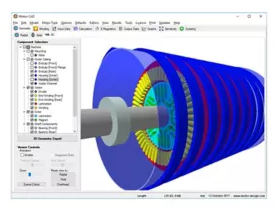
Modern electric machine design necessitates performance study across the entire torque/speed working range. Motor-CAD allows designers to swiftly and simply evaluate the performance of their designs across the working envelope, including field weakening behavior.
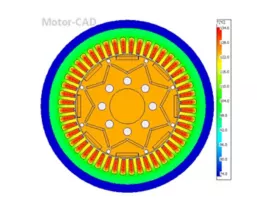
Rapidly assess designs against a wide range of multi-physics performance criteria, including peak and continuous torque/speed characteristics.
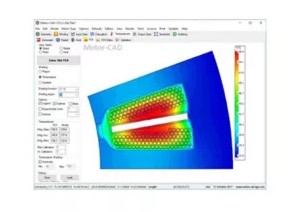
Any simulation of an electric machine generally requires an understanding of manufacturing effects and the impact of manufacturing process variation on performance. Motor-CAD offers built-in information to assist engineers in effectively configuring manufacturing effects, as well as simple sensitivity analysis to understand the influence of manufacturing variation on performance.
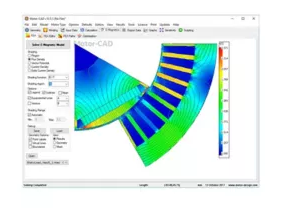
Motor-CAD is an excellent tool for improving electric machine designs. The design space may be easily explored with powerful ratio-based optimization, and each candidate design can be evaluated against the entire performance criteria with coupled multi-physics analysis.
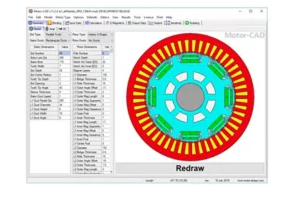
Over the entire operating range, automatically extract and visualize magnetic forces as a function of time and space, and the analysis of an NVH design is made possible.
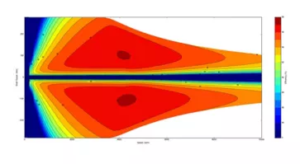
Engineers can readily optimize rotor designs and trade-off between electromagnetic performance and mechanical constraints using rapid, computerized FEA-based rotor stress analysis.